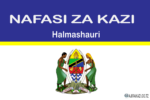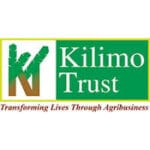AboutGeography
Geography is the study of human and physical environments. It is a subject that combines topics related to physical and human processes over space and time. With the use of Geography, we can better understand our complex world. There are many branches of study in Geography. For example, in Physical Geography, we examine natural processes and features, including the atmosphere, landforms and ecosystems. In human Geography, we investigate the activities and impact of people on Earth. The concept that unifies Geography is space. All geographical phenomena have a spatial dimension and operate in a continuously changing environment.
Geography aims
During Grades 10, 11 and 12 learners are guided towards developing the following knowledge, skills and attitudes:
- Explaining and interpreting both physical and human geographical processes;
- Describing and explaining the dynamic interrelationship between the physical and human worlds;
- Developing knowledge about where places are, and the nature of a range of different places at different scales;
- Practising essential transferable skills – literacy, numeracy, oracy and graphicacy;
- Promoting the use of new technologies, such as information Communication Technology (ict) and Geographi- cal information Systems (gis);
- Developing a commitment towards sustainable development;
- Creating awareness and sensitivity to inequality in the world;
- Ostering empathy, tolerance and fairness; and
- Making and justifying informed decisions and judgements about social and environmental issues.
Geography’s four Big ideas
Any topic in Geography can be explored by applying a conceptual framework that embraces Geography’s four Big ideas, namely:
- Place
- Spatial processes
- Spatial distribution patterns
- Human and environment interaction
These Big ideas’ are organising concepts that are central to geographical knowledge. Some topics in the curriculum focus on one of the Big ideas. Other topics require more than one – or even all – of the Big ideas to be part of the enquiry. Including one or more of the Big ideas in every enquiry ensures that the focus is essentially geographical.
Geographical skills
The Geography curriculum aims to develop the following subject-specific skills:
- Using verbal, quantitative and symbolic data forms such as text, pictures, graphs tables, diagrams and maps;
- Practising field observation and mapping, interviewing people, interpreting sources and working with statistics;
- Applying communication, thinking, practical and social skills;
- Practising the following specific skills:
- Identifying questions and issues;
- Collecting and structuring information;
- Processing, interpreting and evaluating data;
- Making decisions and judgements;
- Deciding on a point of view;
- Suggesting solutions to problems; and
- Working co-operatively and independently.
Geographical education also contributes to the development of personal and social competence.
Attitudes and values
The Geography curriculum aims to foster the following values and attitudes in learners:
- A concern for the sustainable and fair use of resources for the benefit of all;
- Recognising the significance of informed decision making;
- The application of geographical knowledge and skills in learners’ personal lives;
- Respect for the rights of all people; and
- A sense of fairness, sustainability and equality.
Career Opportunities
Science background
- Environmental Assessment
- Urban and Rural Development
- Climate Change and Carbon Credit
- Biodiversity Conservation
- Hydrology
- Ecosystem Services
- Food Security
- Meteorology and Weather Forecasting
- Geomorphology
- Tourism development
- Water or Aquatic Resources Management.
Humanities background
- Biodiversity Conservationist
- Climate Change analyst
- Environmental consultant
- Food Security policy analyst
- Geomorphologist
- Hydrologist
- Market Researcher
- Meteorologist / Weather Forecaster
- Property Developer
- Urban planner
- Rural development strategist
- Tourism officer
- Water or Aquatic Resources Manager











